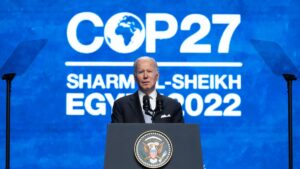Regulating Religious Expression – When is it Too Much?
November 29, 2022
The First Amendment of the United States Constitution allows freedom of speech and expression. However, this is not the case globally, particularly in MENA countries. This could be through enforcing a state religion, or banning specific religions within the state, and supporting others.
Religious regulation can occur for numerous reasons. By enforcing religious laws, a universalized state religion can create a sense of deepened community and nationality. However, this feels like a cop out of any real motivations for religious regulation. Regulating religion may actually be a tool in order to protect political powers from being overcome by the religion itself, as “Politicians often fear religion’s potential political power and seek to keep it in check“.
Regulating religion can also be used as an attempt to control public cultures, which are often difficult to regulate. Looking through official documents of religious MENA states appears to be extreme, but is actually from a voice of fear. Many countries with religious regulation are desperate for total control of the state, and the severity of religious laws illustrate just this. By heavily regulating religion, the state is grabbing for control in every possible aspect of human life, and have zero tolerance for anybody to live outside of state regulation, as it challenges everything the state has worked for. For example, in Saudi Arabia, there is a clearly drawn state religion, which is woven through the legal systems, forcing people to abide by the religion in everyday life, and justifying extreme persecution for not following the state religion, and has been visibly enforced,
While there may be reasons for religious regulation, there is no definitive amount of religious regulation that all should abide by. Even in the United States, where there is freedom of religion written into the constitution, it is written into a constitution that is tightly woven with christianity. Ultimately, religion will be present in nearly every single state, and unfortunately, religious decisions are not always made by the people – they are made by the government.
Voices in the 2022 United Nations Climate Change Conference
November 14, 2022
The United Nations Climate Change Conference is currently underway, ending on the 18th of November. Its purpose is to set an agreement on preventing global temperature increases, by discussing preventative actions.
More than 200 governments are invited to attend, however, some global representatives will not be in attendance. Most notably – several Egyptian government critics have been excluded from this event. Not only was the selection criteria made public, but many civil groups were told they were not invited in advance, and there was no available as to how to apply for attendance.
By preventing its own anti-government voices from attending, Egypt is deliberately removing some of its own voices in order to mask its own public issues with poverty and pollution, and is publicizing its false wellness through COP27.
Besides Egyptian government critics, there are several notable figures that will not be present for COP27. This includes: several Chinese leaders, climate leader Greta Thunburg, Putin, Prime Minister Albanese, and President Bolsonaro (Brazil). They are not attending for a variety of reasons, ranging from war to simple distain for the event.
Meanwhile, many other world leaders will be in attendance: President Biden, and representatives from across Europe and Africa. There will also be numerous non-government organizations present, making COP27 the second largest by population in attendance.
